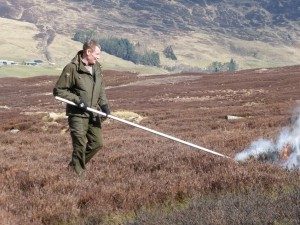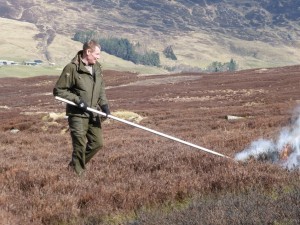 BASC has welcomed a scientific report published by Swansea University which calls for sensible discussion over the use of fire to manage moorlands.
BASC has welcomed a scientific report published by Swansea University which calls for sensible discussion over the use of fire to manage moorlands.
The paper, ‘The role of fire in UK peatland and moorland management’, has been co-authored by leading international experts on land management and published in the peer-reviewed Biology Journal of The Royal Society.
It cautions against polarisation by using unbalanced and unsupported reporting of data, while suggesting informed debate based on weight of evidence could lead to improved land management.
Tim Russell, BASC’s director of conservation, said: “This paper is very reasonable and its balanced content is a welcome addition to the ongoing debate about the management of moorlands, particularly those used for grouse shooting.
“The authors warn against personal views being allowed to dictate land use and land management techniques. BASC clearly agrees that sound evidence should be the central tenet of decision making.
“Burning is an essential tool which has been proven to improve natural habitats and increase biodiversity. The scientific evidence shows that the management of sensitive moorlands for grouse shooting has clear economic, social and environmental benefits.”
BASC has published an infographic which shows that up to five times more threatened species of birds are supported on moors managed by gamekeepers while 75 per cent of the world’s sensitive heather moorland, rarer than rainforest, is found in the UK because of grouse moor management.
The UK’s largest shooting organisation has previously highlighted research which shows that grouse shooting supports the equivalent of more than 2,500 jobs in the UK and has an annual value of around £100 million.
